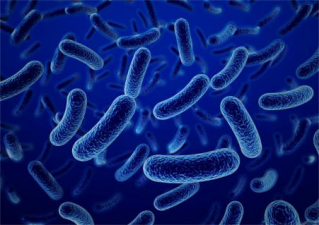In the past, people believed that fruit trees were chlorine-free crops and it was inappropriate to use chlorinated fertilizers. However, modern studies have shown that chlorine is a micronutrient element that is required for plants including fruit trees. The proper amount of chlorine in soil can inhibit the nitrification of nitrogen in soil, reduce the loss of nitrogen and nitrate content of agricultural products, increase the content of soil available phosphorus, can also inhibit the occurrence of crop diseases, increase crop yields and improve agricultural products. quality. However, excessive chlorine content in the soil can inhibit the activity of microorganisms in the soil and lead to a decrease in enzyme activity, which affects the conversion of various organic and inorganic substances in the soil, reduces the pH value of the soil, and acidifies the soil, resulting in soil permeability. Sexual decline, which directly or indirectly affects the yield and quality of agricultural products. Therefore, when orchards are applied with chlorinated fertilizers, they must be moderate. According to the impact of the amount of chlorine in the soil on the yield and quality of the crop, the chlorine tolerance of the crop can be divided into three levels: strong, medium and weak. Chloride-containing fertilizers can be applied to crops with strong chlorine tolerance and medium-to-medium crops, and chlorinated fertilizers can be selectively applied to crops with low-to-medium chloride content and weaker crops, where soil chlorine content is low. Studies have shown that most fruit trees have weak or moderately low chlorine tolerance. Therefore, orchards can selectively use chlorinated fertilizers. Generally, 30 kg of potassium chloride is applied in Mushi, and the amount of chlorine in the soil is increased by 96 mg/kg. The majority of soil in the south of the Yangtze River has a chlorine content of 25 to 50 mg/kg. The sum of both is only 121 to 146 mg/kg, which is lower than The critical value of chlorine tolerance of fruit trees is 165 mg/kg, which will not affect the yield and quality of fruits. When 40 kg of ammonium chloride is applied to Mushi, the soil chlorine content is increased to 180 mg/kg, and the original chlorine content of the soil has exceeded the critical value of chlorine resistance of most fruit trees, which will inevitably affect the yield and quality of fruits. If potassium chloride and ammonium chloride are applied at the same time, the damage will be even greater. Therefore, when applying compound fertilizer in orchards, potassium sulfate compound fertilizer should be applied instead of chlorine-containing compound fertilizer. To sum up, potassium or potassium chloride within 20 kg/mu can be used in fruit orchards. However, neither of the two fertilizers can be applied in the same period, nor can they be used in the same period. Compound fertilizers.
Biocide Technical Ingredients
All water based products have plenty of nutrients and water to support microbe growth under favorable conditions. Microbes invade water based products from multi-point sources, such as contaminated raw materials, poor plant hygiene, untreated water, and not properly preserved recycling materials. While adding in-can preservatives into the products should not excuse a factory from Good Manufacturing Hygiene Practices (GMHP), proper use of in-can preservatives coupled with GMHP can dramatically minimize the chance of microbial tolerance development, and assure unspoiled products to customers.
Biocides formulators often use several types of in-can preservatives as active ingredients in their biocidal products for various industrial water based products. One of these active ingredients is benzisothiazolone (BIT). It has several distinct performance advantages, including good stability at high pH, good stability in the presence of reducing agents, and broad spectrum of activities against many microbes.
Sunshine Biotech supplies to all industrial biocides formulators with high quality BIT technical ingredients. Besides of BIT, we also provide its derivative, like BBIT, MBIT etc.


Biocide Technical Ingredients
Biocide Technical Ingredients,Biocide Formula,Biocide Ingredients,Biocide Liquid
Nanjing Sunshine Biotech Co., Ltd , http://www.sunshine-bio.com

